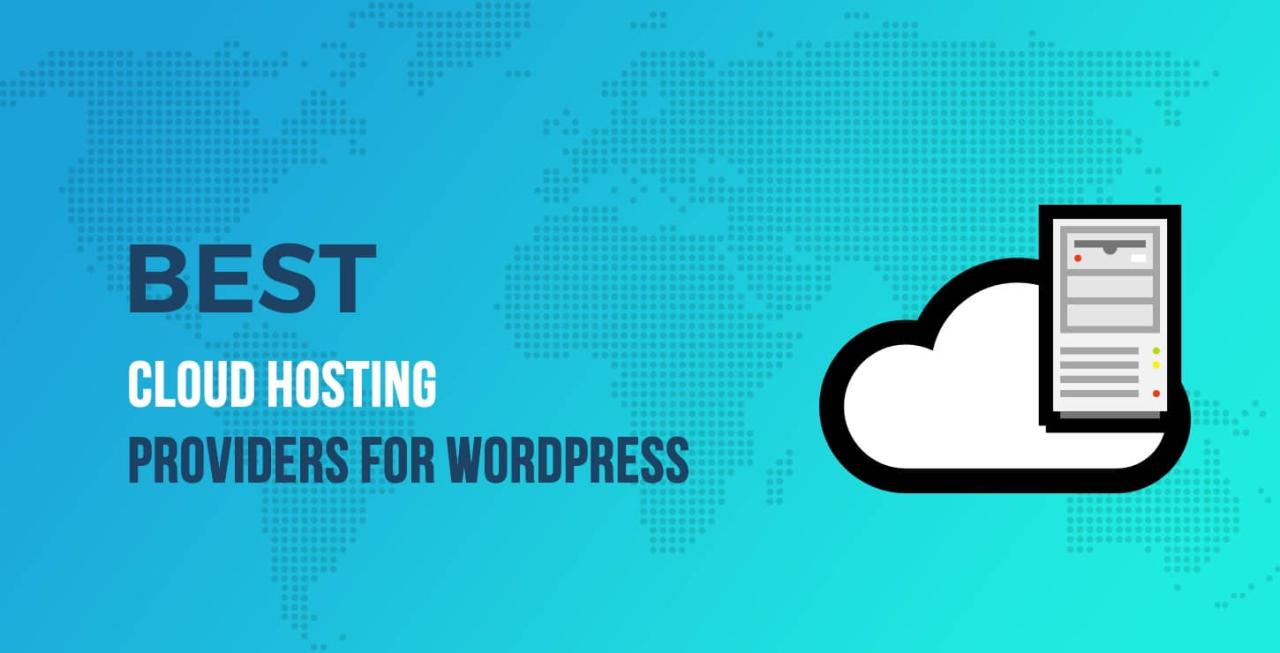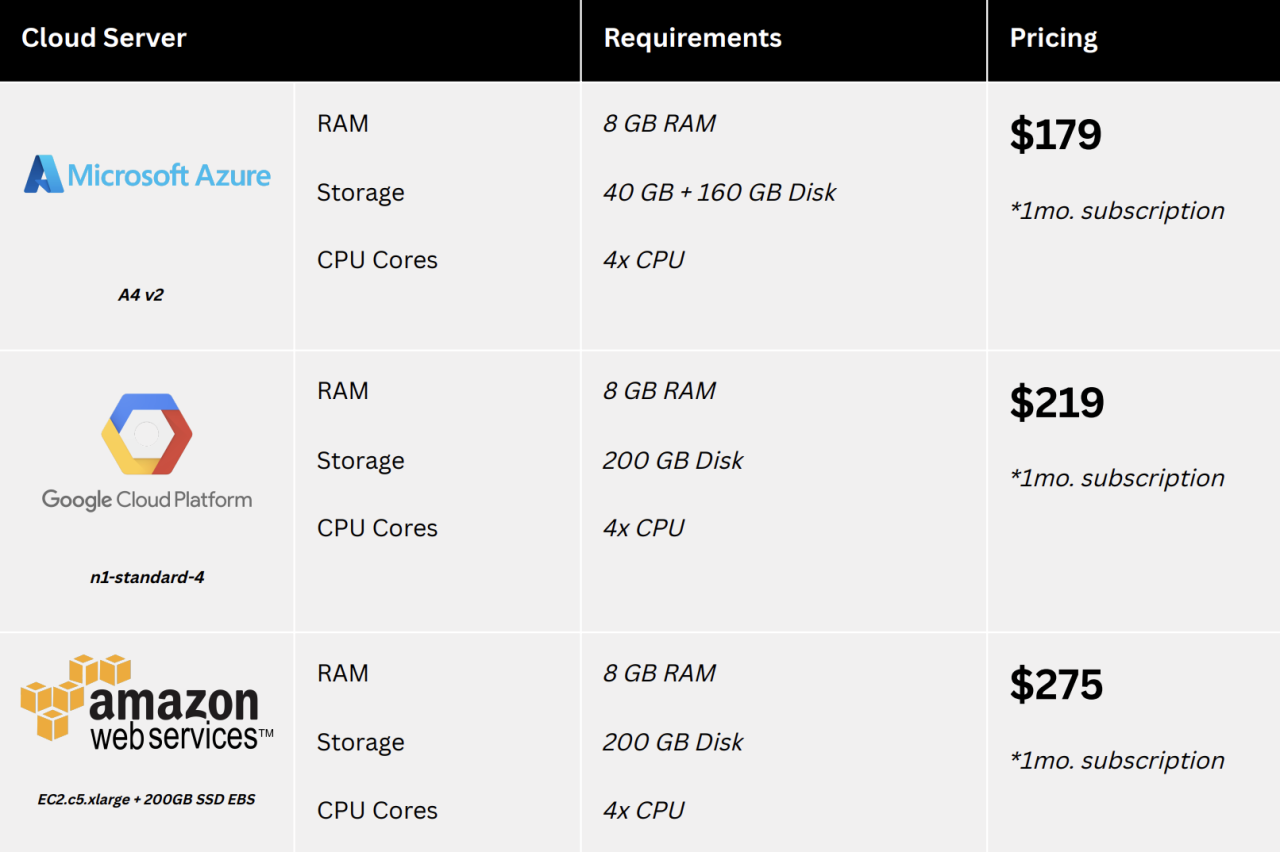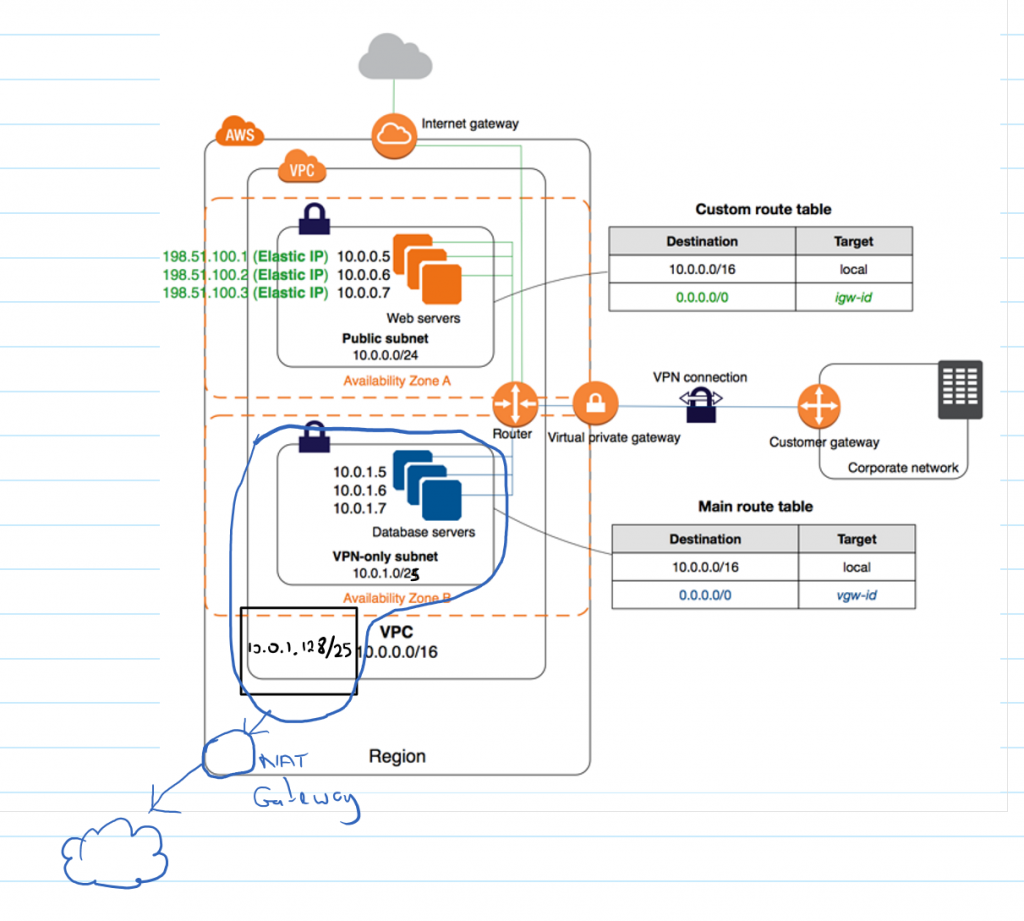Top cloud hosting providers have revolutionized the way businesses operate, offering unparalleled scalability, reliability, and cost-effectiveness. The cloud hosting market is booming, with providers like Amazon Web Services (AWS), Microsoft Azure, and Google Cloud Platform (GCP) leading the charge. These platforms offer a wide range of services, from storage and computing power to advanced AI and data analytics capabilities, empowering businesses to achieve their digital goals.
Choosing the right cloud hosting provider can be a daunting task, as each platform has its unique strengths and weaknesses. This guide will delve into the key factors to consider when making your selection, highlighting the top contenders and their key features, pricing models, and target audiences. We’ll also explore the specific benefits and drawbacks of each provider, providing real-world examples of successful implementations.
Cloud Hosting: The Foundation of Modern Digital Presence
In today’s digital landscape, where businesses and individuals alike rely heavily on the internet for communication, commerce, and information sharing, cloud hosting has emerged as a fundamental pillar of online presence. Cloud hosting has become an indispensable tool for organizations of all sizes, empowering them to navigate the complexities of the digital world with efficiency and scalability.
The global cloud hosting market is experiencing phenomenal growth, driven by the increasing demand for flexible, cost-effective, and reliable infrastructure solutions. This growth is fueled by several factors, including the rising adoption of cloud computing, the increasing number of mobile devices and internet users, and the growing need for businesses to access data and applications from anywhere at any time.
Benefits of Cloud Hosting
Cloud hosting offers a plethora of benefits that have revolutionized the way businesses and individuals approach their online presence. Here are some of the key advantages:
- Scalability and Flexibility: Cloud hosting provides unparalleled scalability, allowing businesses to easily adjust their resources based on demand. This flexibility enables them to accommodate fluctuating workloads and ensure optimal performance, regardless of traffic spikes or seasonal variations. For instance, an e-commerce website can seamlessly scale its resources during peak shopping seasons, such as Black Friday or Cyber Monday, to handle the surge in traffic and ensure a smooth shopping experience for customers.
- Cost-Effectiveness: Cloud hosting offers a cost-effective alternative to traditional on-premises infrastructure. Businesses only pay for the resources they use, eliminating the need for upfront investments in hardware and software. This pay-as-you-go model allows businesses to optimize their IT spending and allocate resources more efficiently.
- High Availability and Reliability: Cloud hosting providers typically offer high availability and redundancy, ensuring that websites and applications remain accessible even in the event of hardware failures or outages. This ensures business continuity and minimizes downtime, which is crucial for maintaining customer satisfaction and productivity.
- Security: Cloud hosting providers invest heavily in security measures to protect data and applications from unauthorized access and cyber threats. These measures include firewalls, intrusion detection systems, and data encryption, providing a secure environment for sensitive information.
- Ease of Management: Cloud hosting simplifies the management of IT infrastructure, allowing businesses to focus on their core competencies. Cloud providers handle tasks such as server maintenance, software updates, and security patching, freeing up internal resources for more strategic initiatives.
Defining Key Criteria for Evaluation: Top Cloud Hosting Providers
Choosing the right cloud hosting provider is crucial for any website or application, as it directly impacts performance, security, and overall success. To make an informed decision, it’s essential to evaluate potential providers based on specific criteria that align with your individual needs.
Reliability
Reliability is paramount for cloud hosting, as it ensures your website or application remains accessible and operational. A reliable provider offers consistent uptime, minimal downtime, and swift recovery from any outages. Here are some factors to consider when assessing reliability:
- Service Level Agreements (SLAs): SLAs are contracts that guarantee uptime percentages and define penalties for downtime. Look for providers with strong SLAs that specify clear uptime commitments and recovery time objectives (RTOs).
- Data Center Infrastructure: The physical infrastructure of data centers is crucial for reliability. Choose providers with geographically diverse data centers that offer redundancy, backup power, and disaster recovery capabilities.
- Network Performance: A robust network infrastructure ensures fast loading times and minimal latency. Evaluate providers based on their network bandwidth, connectivity, and latency metrics.
Security
In today’s digital landscape, security is paramount. A secure cloud hosting provider protects your data and applications from unauthorized access, cyberattacks, and data breaches. Here are key security considerations:
- Data Encryption: Ensure your data is encrypted both at rest and in transit. Look for providers that use industry-standard encryption protocols like TLS/SSL and AES.
- Firewall Protection: Firewalls act as barriers to prevent unauthorized access to your network. Choose providers that offer robust firewall configurations and intrusion detection systems.
- Regular Security Audits: Regular security audits help identify and address vulnerabilities. Look for providers that conduct frequent audits and adhere to industry best practices.
Scalability, Top cloud hosting providers
Scalability is essential for businesses that experience fluctuations in traffic or require the ability to expand their resources. A scalable cloud hosting provider allows you to adjust your resources as needed, ensuring smooth operation even during peak demand. Key factors to consider include:
- Vertical Scaling: This involves adding more resources, such as CPU, RAM, or storage, to existing servers. Look for providers that offer flexible scaling options to accommodate growing workloads.
- Horizontal Scaling: This involves adding more servers to your infrastructure. Choose providers that offer easy horizontal scaling, enabling you to add servers on demand.
- Automatic Scaling: Automatic scaling dynamically adjusts resources based on real-time usage patterns, ensuring optimal performance without manual intervention. Look for providers that offer automatic scaling capabilities.
Cost-Effectiveness
Cost-effectiveness is a significant consideration, especially for businesses on a budget. A cost-effective cloud hosting provider offers competitive pricing, transparent billing, and value for your investment. Here are key aspects to consider:
- Pricing Models: Cloud hosting providers offer various pricing models, including pay-as-you-go, fixed monthly fees, and tiered pricing. Choose a model that aligns with your budget and anticipated usage.
- Resource Optimization: Efficiently utilize your resources to minimize costs. Look for providers that offer tools and features for resource monitoring and optimization.
- Value-Added Services: Consider the value-added services included in your hosting package, such as free SSL certificates, website backups, and security features.
Microsoft Azure
Microsoft Azure is a comprehensive cloud computing platform offering a wide range of services, from infrastructure as a service (IaaS) to software as a service (SaaS). It stands as a leading contender in the cloud hosting market, known for its robust security features, extensive global network, and integration with Microsoft’s ecosystem.
Azure’s Key Features and Focus on Hybrid Cloud Solutions
Azure offers a diverse portfolio of services catering to various business needs. Some of its key features include:
- Compute: Virtual machines (VMs), containers, serverless computing, and high-performance computing (HPC) for flexible and scalable application deployments.
- Storage: Blob storage, file storage, disk storage, and archive storage for reliable and cost-effective data management.
- Networking: Virtual networks, load balancers, firewalls, and DNS services for secure and efficient network connectivity.
- Databases: SQL databases, NoSQL databases, and data warehousing solutions for managing and analyzing data.
- Analytics: Data analytics, machine learning, and artificial intelligence (AI) services for extracting insights from data.
- Security: Identity and access management (IAM), threat protection, data encryption, and compliance services for safeguarding data and applications.
Azure’s commitment to hybrid cloud solutions is evident in its ability to seamlessly connect on-premises infrastructure with cloud services. This allows businesses to leverage the benefits of both worlds, migrating workloads gradually and securely.
Comparison with AWS
Azure and AWS are the two dominant players in the cloud computing market, each with its own strengths and weaknesses.
- Strengths of Azure:
- Strong integration with Microsoft products and services, such as Windows Server, Office 365, and Active Directory.
- Robust security features, including compliance certifications like HIPAA, GDPR, and SOC.
- Extensive global network with data centers in multiple regions.
- Focus on hybrid cloud solutions, making it easier to connect on-premises infrastructure with cloud services.
- Strengths of AWS:
- Wider range of services and a more mature platform.
- Stronger community support and a larger ecosystem of partners.
- Lower pricing for certain services, especially storage.
Azure as the Optimal Choice
Azure would be the optimal choice for businesses that:
- Are heavily invested in Microsoft technologies: Businesses using Windows Server, Office 365, or Active Directory can benefit from seamless integration with Azure.
- Require robust security features: Azure’s security certifications and comprehensive security services make it suitable for industries with strict compliance requirements.
- Need hybrid cloud solutions: Businesses looking to gradually migrate workloads to the cloud or connect on-premises infrastructure with cloud services can leverage Azure’s hybrid cloud capabilities.
- Value Microsoft’s customer support: Azure offers reliable and responsive customer support, especially for businesses that prefer Microsoft’s expertise.
Linode

Linode is a cloud hosting provider that stands out for its commitment to delivering high-performance cloud infrastructure. It offers a diverse range of cloud services, including virtual machines, storage, and networking solutions, designed to cater to various needs, from small businesses to large enterprises. Linode’s focus on open-source technologies and its dedication to providing a user-friendly experience have made it a popular choice among developers and businesses seeking reliable and scalable cloud solutions.
Linode’s Unique Features
Linode distinguishes itself through its emphasis on open-source technologies and its commitment to providing a transparent and user-friendly experience. Its services are built on a foundation of open-source software, allowing for greater flexibility and control over the cloud environment. This open-source approach aligns well with the values of many developers and businesses, fostering a sense of community and collaboration.
Linode’s user interface is intuitive and straightforward, making it easy for users to navigate and manage their cloud resources. The platform provides comprehensive documentation and support resources, ensuring that users have the necessary tools to succeed.
Linode’s Pricing Plans
Linode offers a variety of pricing plans to suit different needs and budgets. Its pricing model is based on a pay-as-you-go approach, allowing users to scale their resources up or down as required. This flexibility ensures that users only pay for the resources they use, avoiding unnecessary expenses.
Here’s a comparison table of Linode’s pricing plans against other providers in the same category:
| Provider | Plan Name | CPU | RAM | Storage | Price/Month |
|---|---|---|---|---|---|
| Linode | Linode 1024 | 1 vCPU | 1 GB RAM | 25 GB SSD | $5/month |
| DigitalOcean | Droplet (Basic) | 1 vCPU | 1 GB RAM | 25 GB SSD | $5/month |
| Vultr | VPS (Basic) | 1 vCPU | 1 GB RAM | 25 GB SSD | $5/month |
Linode’s pricing plans are competitive and offer a good value proposition for users seeking affordable and reliable cloud hosting solutions. Its pay-as-you-go model allows for flexibility and cost optimization, making it a viable option for businesses of all sizes.
Final Conclusion

Ultimately, the best cloud hosting provider for your needs depends on your specific requirements, budget, and technical expertise. By carefully evaluating each provider’s offerings and understanding your long-term scalability goals, you can make an informed decision that will empower your business to thrive in the digital age. Remember to leverage available resources, seek expert advice, and stay informed about the latest developments in the cloud hosting landscape to ensure your chosen provider continues to meet your evolving needs.




